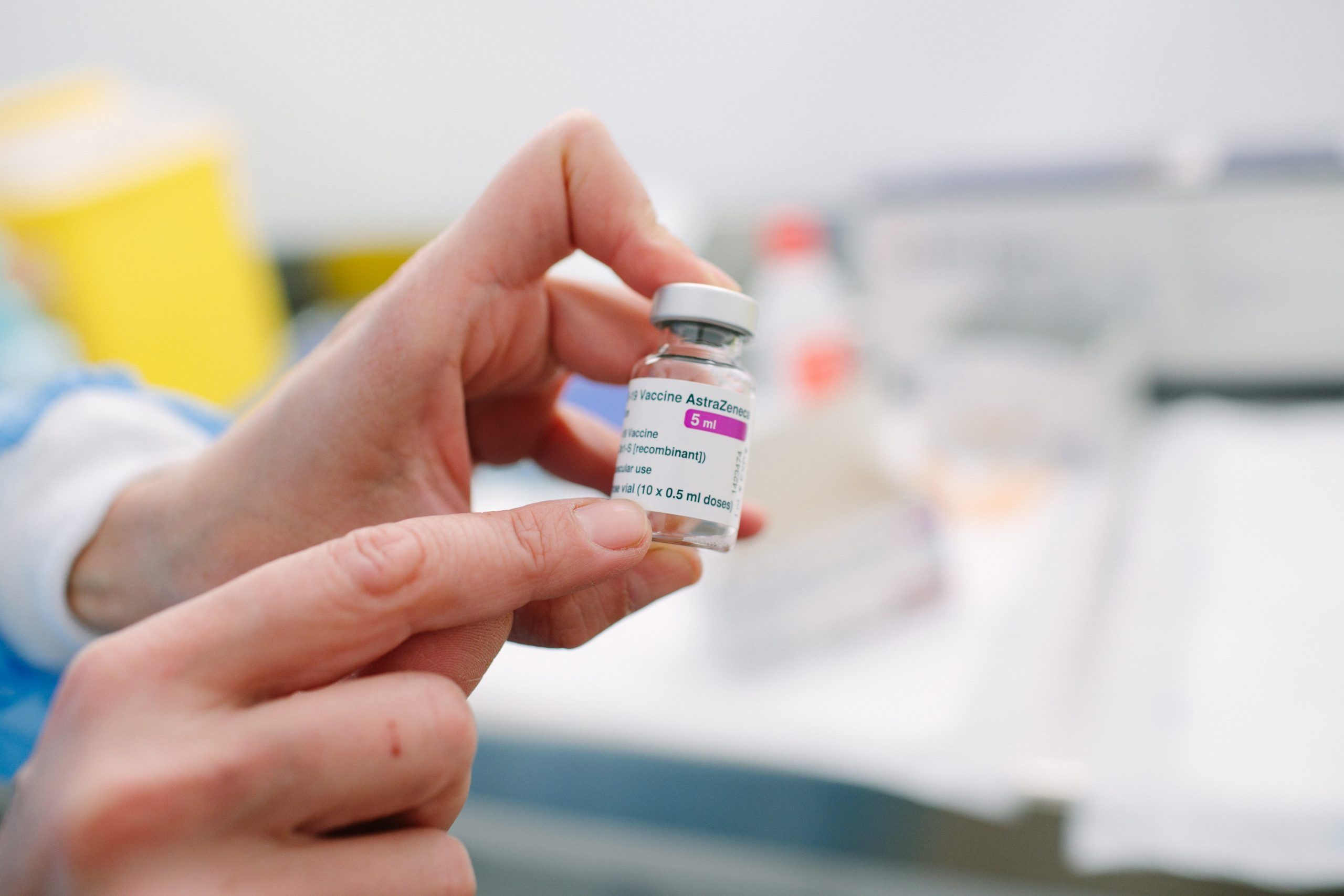Of the three Danes to have suffered from VITT – a rare and often fatal side-effect of the AstraZeneca vaccine – Camilla is the only survivor.
All three were given the jab early as medical frontline staff. Now receiving compensation for “burning and pain”, Camilla – who asked DR for her surname to be omitted for privacy – has spoken out about her experience.
Warning signs
Camilla works as an educator at a residence for the mentally handicapped and received her first AstraZeneca jab on March 2.
In the days after the vaccine, she felt tired and sore. The following week a headache came on, which she assumed was a violent migraine. Nonetheless, the pain was so extreme that she went to the emergency room, where she was given painkillers and discharged.
Some 13 days after the vaccine she noticed a huge bruise on her shin and went back to the hospital. “The neurologist had checked my reflexes everywhere, so I thought it was the hammer he had used,” said Camilla.
During the visit, more bruises appeared on her stomach and thighs – a tell-tale clotting signal. “They took an ultrasound scan of my legs and stomach and found the first blood clot in the liver,” she recalled.
“My world collapsed”
She was quickly transferred to Rigshospitalet for palliative care: “I actually got better … but there was a ringing in my ears and when I told a doctor he said “we’re driving straight down to a CT scanner.” It turned out there was another clot in her brain.
“I wasn’t very scared. I wasn’t feeling well, but I wasn’t scared. I felt in safe hands with the doctors,” said Camilla.
But then a 30-year-old woman with the same vaccine-induced symptoms died in Norway: “My world collapsed. I got scared. I was afraid to go to bed at night.”
It emerged that Camilla had VITT – Vaccine-Induced Immune Thrombosis and Thrombocytopenia – a disease characterised by blood clots, bleeding and a low platelet count. The syndrome develops three to 30 days after the COVID-19 vaccination, but most often in the first week after vaccination.
But is it a work-related injury?
Camilla has received 4,100 kroner from Patient Compensation – a preliminary amount that covers the burning and pain. Whether or not her case will be covered by Labour Market Insurance (AES) will determine the final payout.
The trade union FOA emphasises the need for vaccinated frontline staff to have any side-effects recognised as work-related injuries.
Camilla agrees. “I did not get this vaccine for my own sake. I got it to protect others and to show community spirit. I need the authorities to recognise it as a work injury,” she says.
Frustratingly, Camilla’s case should have been settled in August but has been postponed until November.
Conquering fear of death
At Patient Compensation, 230 COVID-19 vaccine-related cases are still awaiting a decision. At AES, 13 work injuries caused by COVID-19 vaccinations have been recognised, while 99 are unresolved.
Today she is working 30 hours a week after being on sick leave, though still taking medication.
“At some point I was sure I’d die of this and I actually accepted that,” admitted Camilla. “But now I think I feel better than I have had for several years because my life was turned upside down. I try not to get angry and stressed over small things. I appreciate everything a little more.”
National Board of Health wants vaccine centers at education institutions
The National Board of Health wants to erect pop-up vaccination sites in several places in the country – particularly around schools and universities – according to the Danish Health and Medicines Authority. The hope is that more young people will be vaccinated if centres are conveniently located. Several regions are already planning to offer jabs at educational institutions, including Region Zealand, where 30 temporary vaccination centres will be set up at – for example, Absalon University College, EUC Zealand and Zealand Business College.
Novavax once again postpones application for approval
The US vaccine manufacturer Novavax has again delayed the submission of data for its COVID-19 vaccine to the US regulator as the biotech company struggles to collate consistent manufacturing information. Novavax initially planned to apply for approval in the EU and US in September. On Wednesday, the European Commission entered into an agreement with Novavax to deliver up to 200 million doses of the coronavirus vaccine.
Denmark’s youth demographic is most vaccine-friendly in Europe
Some 74 percent of Danes aged 18-24 have received their first shot of coronavirus vaccine as of 30 July, according to SSI. That places Denmark first in that demographic amongst European countries with at least one million inhabitants. However, smaller island states such as Malta and Iceland have higher uptake percentages. Among Danes aged 25-29 and 30-34, the vaccine uptake is 65 percent and 62 percent respectively.
Copenhagen introduces walk-in vaccinations
From August 16, the Capital Region of Denmark will introduce vaccinations without an appointment at all vaccination centres from 09:00 to 18:00. Initially, five vaccination teams will be able to deliver 1,000 walk-in jabs per day. In September, the capacity will double. Of the 280,000 who have been invited for a vaccination in the Capital Region, 19 percent have not yet booked their first dose.
Study: Few children experience long-term effects of COVID-19
A study from King’s College in London, published in The Lancet science journal, has concluded that the number of children experiencing long-lasting corona symptoms is very low. The study examined 1,734 children aged 5-17 who had tested positive for coronavirus. Some 1.8 percent of corona-infected children displayed symptoms for more than two months after infection. After the first month, symptoms were mostly mild headaches and fatigue. Most children had recovered completely after day 56, according to the paper.
Denmark cannot achieve herd immunity, says SSI
Since the beginning of the pandemic, herd immunity has been heralded as the end-goal in the fight against coronavirus. A population is considered to have reached herd immunity when so many individuals are immune that it’s extremely difficult for the disease to spread. However, with the emergence of the more infectious Delta variant, the threshold for herd immunity has shifted. At the start of the pandemic, experts agreed that 60 percent immunity was enough to achieve herd immunity. In December 2020 the threshold was estimated at 70 percent. At the end of July, Viggo Andreasen, an associate professor of mathematical epidemiology at Roskilde University, told TV2 that 85 percent of the population must be vaccinated to protect against Delta. Now, no matter how many are vaccinated, it is no longer realistic to obtain herd immunity in Denmark, according to the Statens Serum Institut (SSI). Nevertheless, the goal is still to vaccinate as many as possible to achieve the maximum possible societal immunity. Some 4.2 million Danes have had the first jab, while 3.3 million have had both doses.















